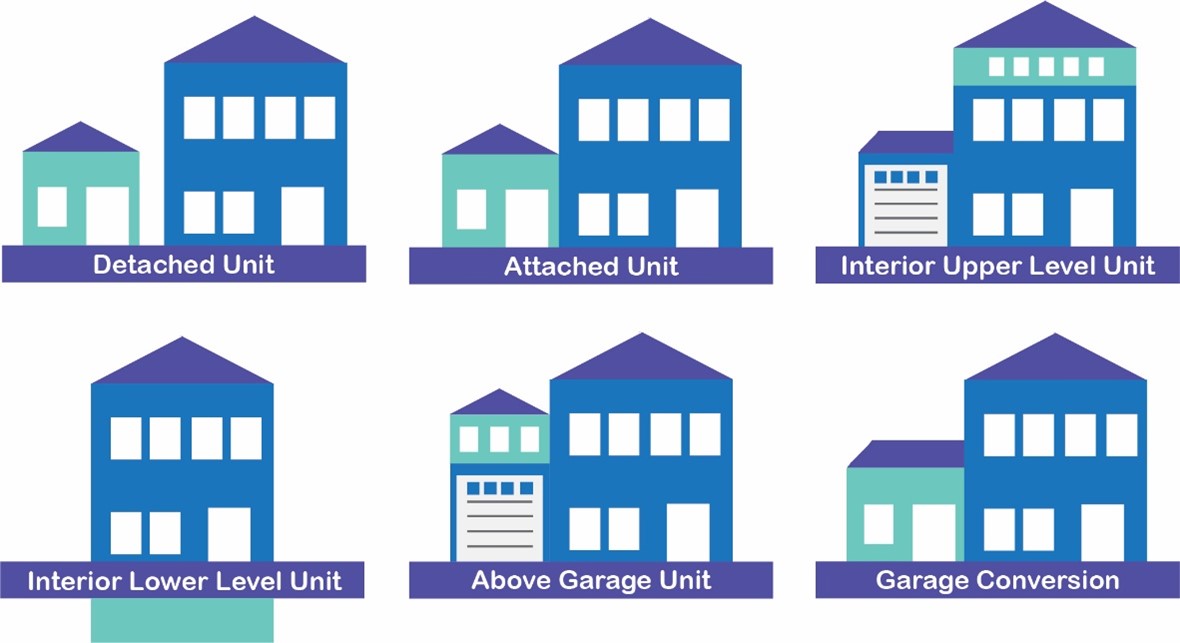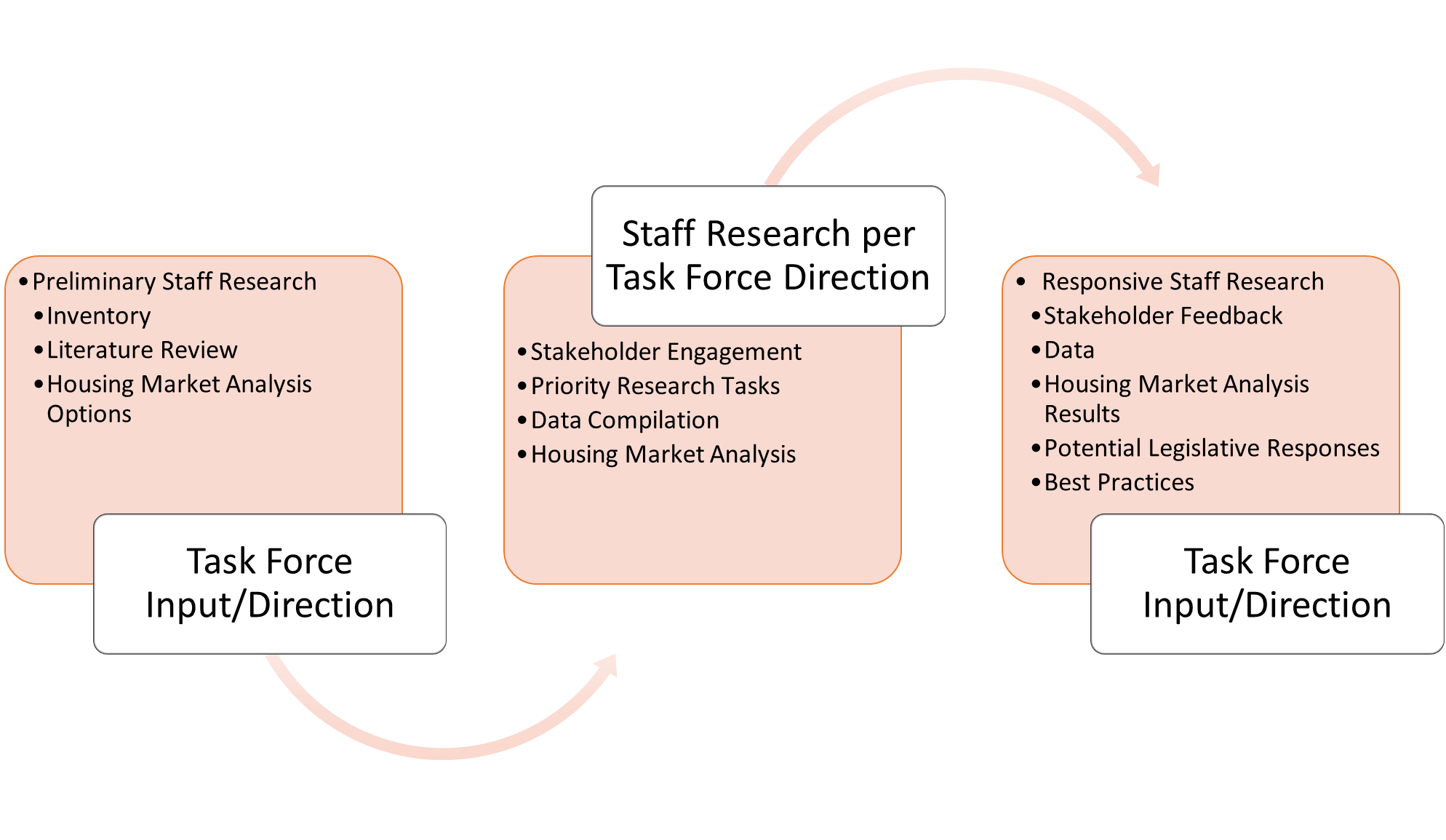Published May 31
During the 2023 session, the Maryland General Assembly passed
SB 382 (sponsored by
Senator Mary Washington), which was enacted into law on May 28, 2023. The bill established the Accessory Dwelling Unit Policy Task Force (Task Force) to study the placement of accessory dwelling units (ADU) on land zoned for single-family residential use and to survey and document a representative sampling of the variety of ordinances, laws, codes, and policies regarding accessory dwelling units at the state and local level. The Task Force also studied best practices for streamlining or standardizing the local ADU application and development review process. From this analysis, the Task Force developed legislative and policy recommendations and studied the potential impacts on surrounding single-family neighborhoods, local housing markets, and neighborhood character.
Comprehensive Plan Housing Element Resources
MDP, in partnership with the Maryland Department of Housing and Community Development (DHCD), developed guidance in response to
HB 1045 (2019) and
HB 90 (2021), which require a housing element in comprehensive plans that addresses affordability and fair housing, respectively. As part of those efforts, MDP collaborated with local housing authorities and affordable housing advocates who may also serve as resources for this effort.

Common ADU Types
Required Reports/Analyses
MDP staff, guided by the Task Force, is responsible for delivering the following to Governor Moore and the General Assembly:
-
Task Force activities report, due November 1, 2023. This report included Task Force membership, meeting dates, notes, agendas, research and analysis, current Maryland ADU codes and policies, Task Force input, preliminary recommendations for the next steps, and a project completion schedule.
Report is posted.
Task Force final report, submitted May 31, 2024. This report included the findings and recommendations describing potential issues with current ADU regulations in Maryland, the process to prepare and adopt local ADU regulations, which zoning districts should allow ADUs, and whether such regulations could result in new ADUs. Other information addressed measurable results, local permitting, lessons learned, and potential impacts on local housing markets and neighborhood character. Local best practices were also compiled and explained, providing guidance for jurisdictions wishing to adopt ADU regulations. Finally, the report included recommendations to the governor and general assembly related to state and local-level legislation impacting ADUs. Report is posted.
Example Garage ADU Conversion
SB 382 establishes the following Task Force membership. Governor Moore assigns the Task Force Chair.
- One member of the Senate
- One member of the House of Delegates
- Maryland Department of Planning Secretary or designee
- Maryland Department of Housing and Community Development Secretary or designee
- The following members, appointed by the Governor, include:
- One urban and one rural county representative from the Maryland Association of Counties
- One urban and one rural municipal representative from the Maryland Municipal League
- An individual with professional experience in the planning and development of roads and highways
- One representative from each of the following:
- Maryland Building Industry Association
- Maryland Association of Realtors
- Chesapeake Region Chapter of the Community Associations Institute
- American Institute of Architects Maryland
- American Association of Retired Persons Maryland
- Maryland Coalition for Interior Designers
Task Force Planning Process
MDP will inventory and analyze local ADU regulations in Maryland and present the results to the Task Force. As part of that effort, the Task Force will also review professional publications and interview planners, statewide and nationally, with direct ADU experience. Outreach may also include focus groups and surveys. Through this process, the team will identify best practices, however, a subcommittee may be required to conduct more in-depth assessments of ADU issues.
MDP staff and partners will complete and present the ADU research described above, follow the presentation with questions for the Task Force, and adjust as necessary, as shown in the diagram below. MDP staff and the Task Force will repeat this iterative process throughout the Task Force’s tenure. Staff will expand upon preliminary research and develop additional research questions at the Task Force’s direction. Later stages of the process will transition from a focus on research to Task Force recommendations and final report content.

Task Force Meetings
Task Force meetings were open to the public and scheduled at the direction of the Chair. MDP posted meeting recordings and materials here.
For information on the work of the Task Force, please contact Joe Griffiths, Local Assistance and Training Manager for the Maryland Department of Planning, at
joseph.griffiths@maryland.gov.